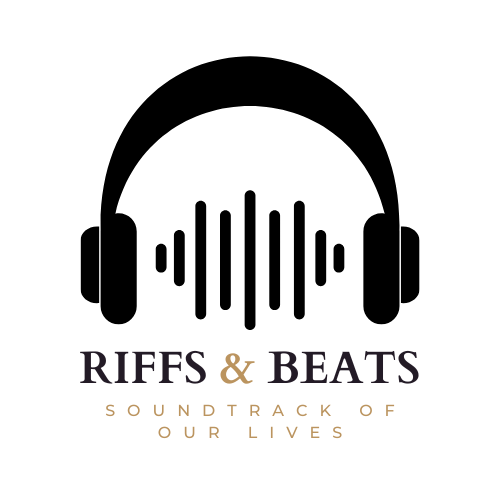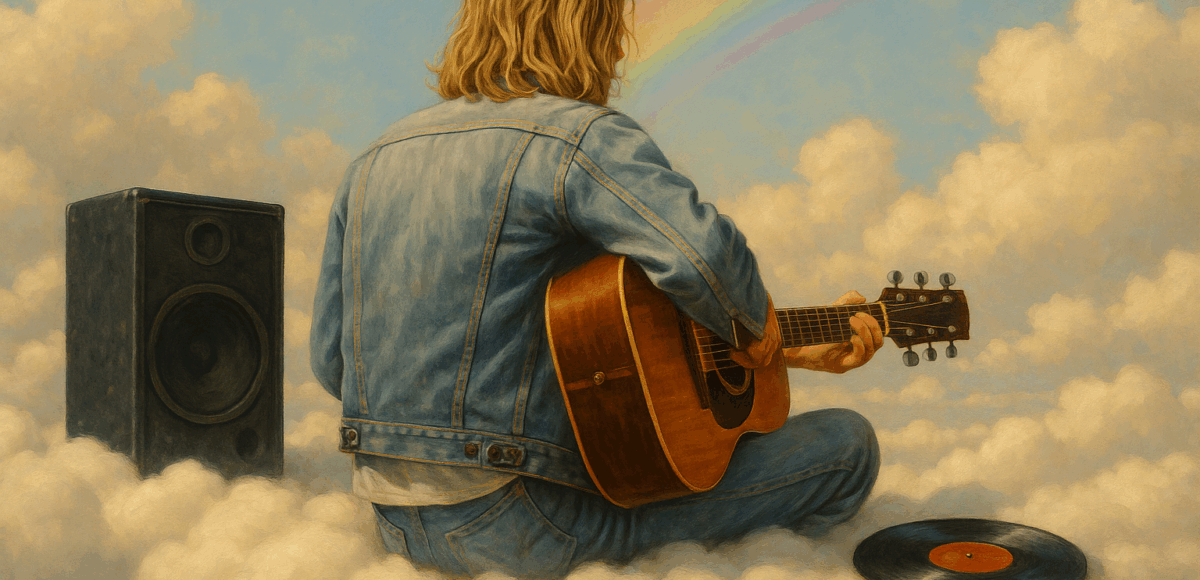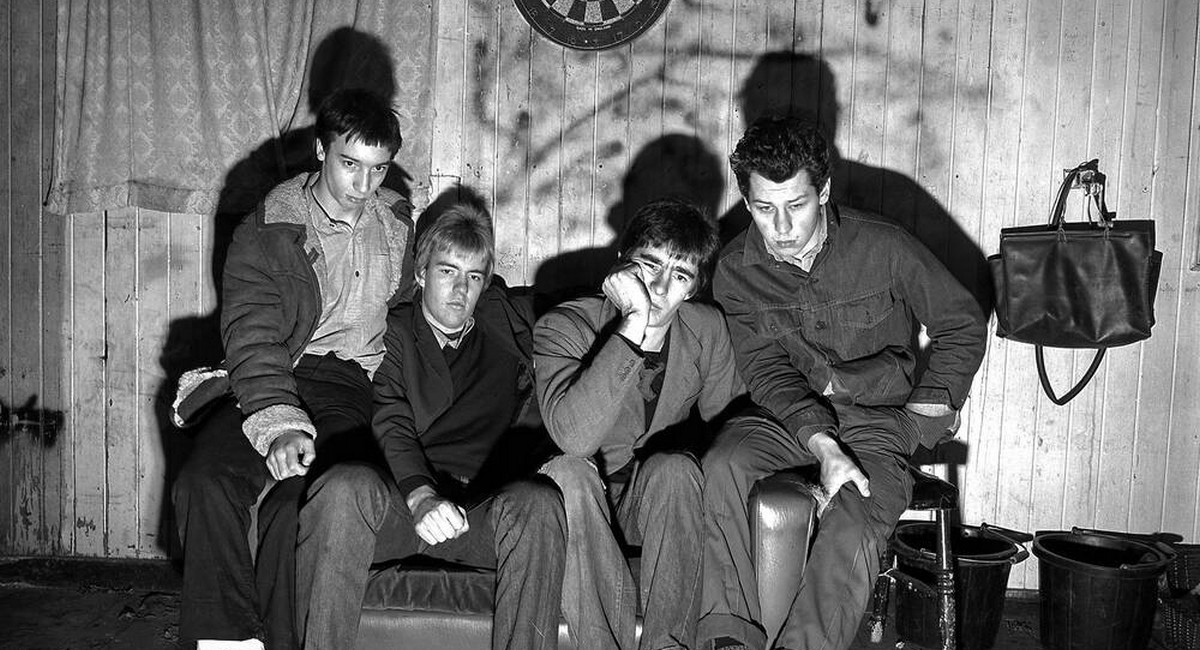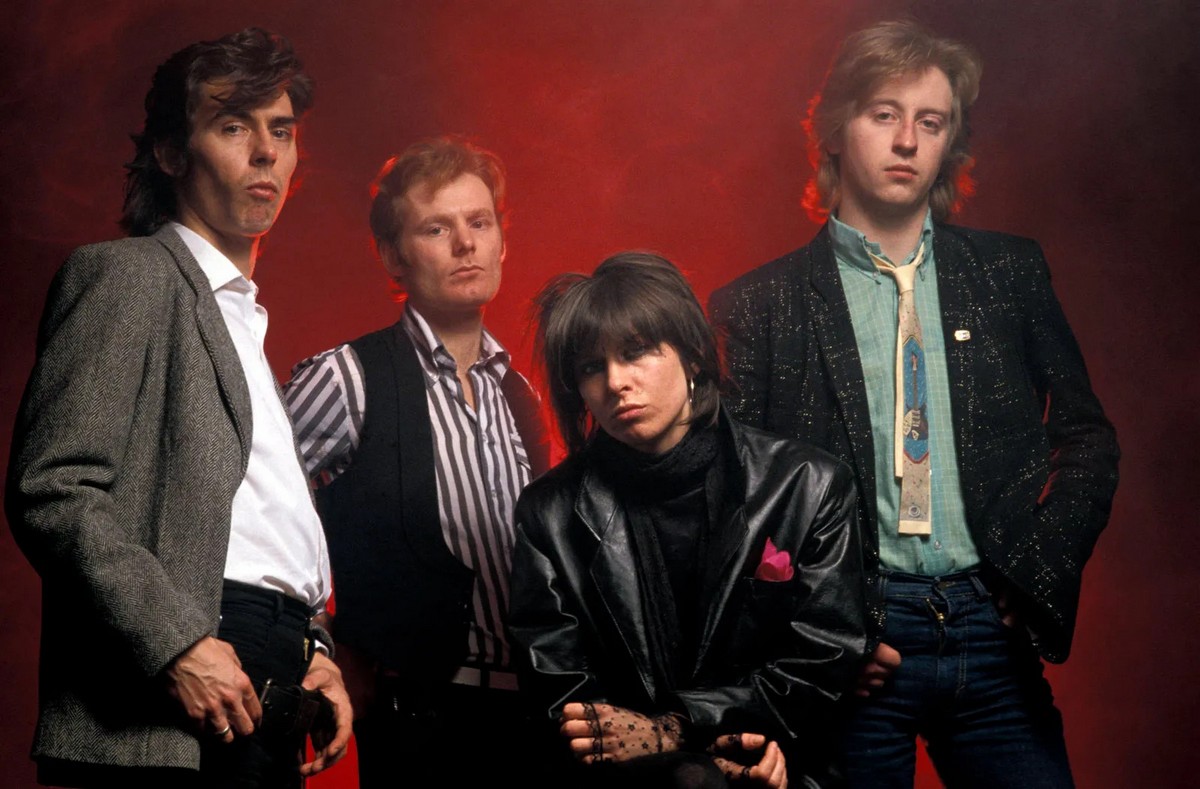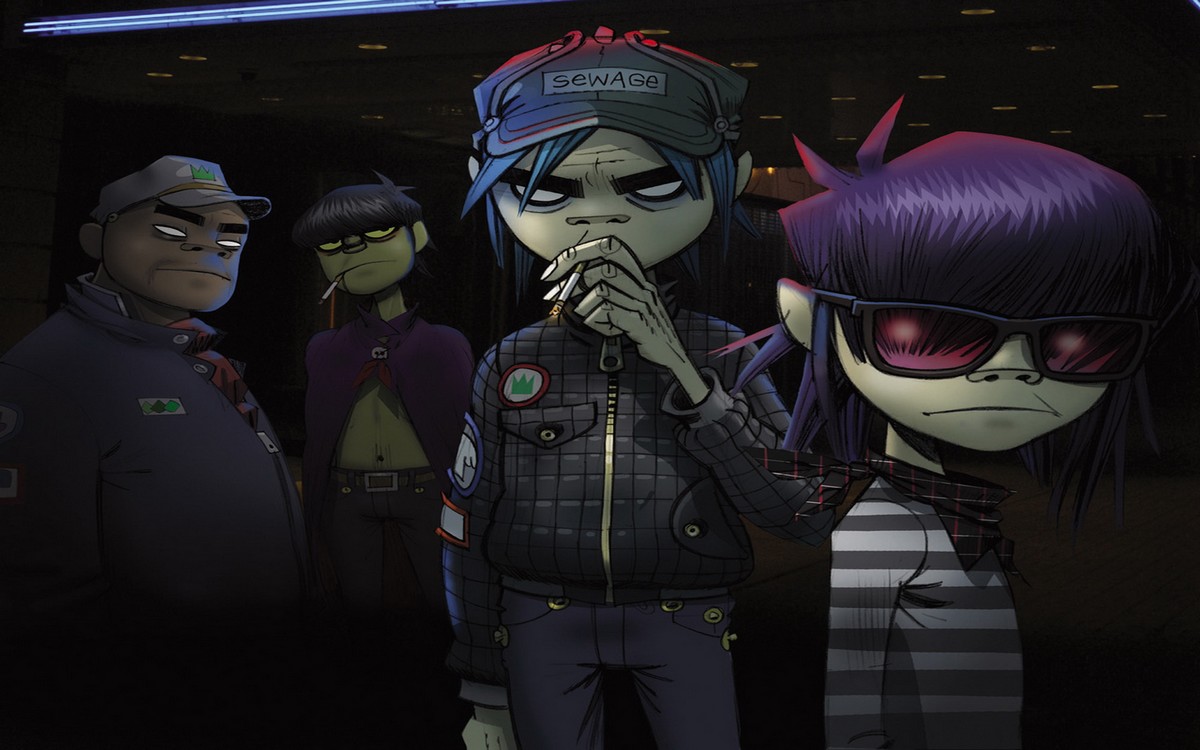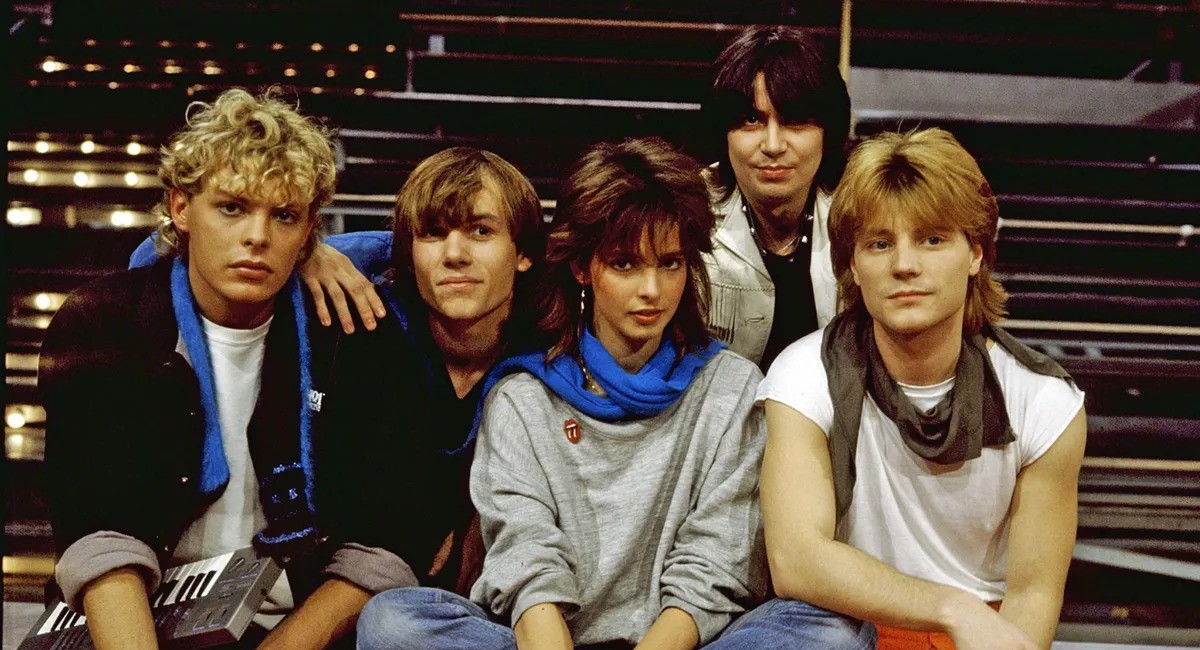In the dim twilight of a forest where silence hums like feedback and lost voices echo through the trees, Riffs and Beats found itself face-to-face with Kurt Cobain, not the icon etched in tragedy, but the restless soul, ever questioning, ever raw. There was no stage, no spotlight, only a broken log, two cups of bitter coffee, and the ache of everything left unsaid.
Riffs and Beats
Kurt, if you were to walk the streets of today’s world, what would strike you most about the state of our society?
Kurt Cobain
I think what would hit me hardest is how performative everything has become. People curate their identities like brands now, constantly broadcasting versions of themselves to keep up, to stay visible, to be validated. It’s like reality’s been replaced by filters and followers. I always felt like an outsider even at the peak of fame, but now it seems like even the outsiders are forced to play the same game. There’s this illusion of freedom, everyone has a voice, a platform, but it’s more like everyone’s shouting into the same crowded void. I’d probably want to run from it all and hide in a basement with a tape machine and a guitar.
Riffs and Beats
The music industry has changed drastically. How would you react to the dominance of algorithms and social media over discovery?
Kurt Cobain
That’s a nightmare to me, honestly. Music was supposed to be a rebellion, a sanctuary, a kind of organized chaos. Now it feels like it’s been tamed and boxed into neat categories to feed the algorithm gods. I get it, exposure is everything now, but the price is that real risk, that vulnerability, gets smoothed out. Artists are being trained to think like marketers, to chase trends instead of truth. I hated even thinking about how to sell a record, I just wanted to scream, to confess, to bleed a little. If I had to think about engagement rates and TikTok hooks, I would’ve imploded even faster.
Riffs and Beats
Many artists today are open about mental health. Would that have helped you?
Kurt Cobain
In some ways, I think it would’ve been a relief. Back then, admitting you were in pain made people uncomfortable, there was still this macho thing in rock where you had to pretend to be invincible, or at least mysterious. I tried to write my pain into songs, but offstage, it was hard to find people who really wanted to hear it without trying to fix it, exploit it, or romanticize it. Today, there’s more space for that conversation, more honesty. But I also worry that we’re starting to commodify pain, like, your trauma becomes your brand, your vulnerability becomes your currency. And that’s dangerous too. What I needed wasn’t a post going viral about depression. I needed someone to sit with me in the dark without trying to explain it away.
Riffs and Beats
Would you have embraced the resurgence of raw, lo-fi sounds in modern indie and grunge-inspired acts?
Kurt Cobain
I think there’s something beautiful about seeing new bands pick up a guitar and let it howl, not because they want a label deal, but because they’ve got something burning inside. That’s what grunge was at first, ugly, honest, real. And I hear echoes of that now in some of these lo-fi acts, the ones who still believe in the basement show, the DIY ethic, the cathartic scream in a world that doesn’t care. But I’d be cautious. I’d tell them not to fall into the nostalgia trap, don’t wear flannel just because we did. Don’t mimic the sound without understanding the ache that made it. If you’re going to be raw, be raw about your life, your time. Make your own noise, not a ghost of ours.
Riffs and Beats
What do you think of the way your image and legacy are used today?
Kurt Cobain
It’s surreal. I became a symbol for things I never wanted to represent, rebellion, martyrdom, tortured genius. People project so much onto me, and I get it, we all need icons, but I was just a messed-up kid with a guitar and too many thoughts. It’s painful to see my face on t-shirts sold by corporations I would’ve hated, my quotes taken out of context and fed into algorithms that push the same fake rebellion I tried to run from. I didn’t want to be a statue. I wanted to be human, flawed, scared, angry, confused. If anything, I’d hope people see past the mythology and hear the cracks in the voice, the truth in the noise.
Riffs and Beats
Do you see hope in the youth of today?
Kurt Cobain
Definitely. They’re bold, they’re loud, they’re refusing to accept the same old lies. I see this fire in them, not just to create, but to dismantle, to question, to rebuild. That’s something I always believed in. But I also see how exhausted they are. There’s this constant pressure to be radical, to be perfect, to be constantly aware and activated. That’s a heavy load. I’d want to tell them that it’s okay to pause, to breathe, to not have all the answers. Sometimes just surviving another day is the most radical act there is. Hope doesn’t always look like a riot. Sometimes it’s a whisper that refuses to die.
Riffs and Beats
What do you think has been lost in music today?
Kurt Cobain
There’s a purity that’s missing, that feeling of making music because you have to, not because it might go viral. We used to tape over old cassettes, record in garages with cheap mics, and it sounded like shit, but it was ours. Now everything’s polished, autotuned, compressed until it’s flat. It’s not about the notes you play, it’s about the silence in between, the human flaws, the missed beats, the breath before the scream. That’s where the soul lives. We’ve traded that for perfection, and I think something sacred got lost in that trade.
Riffs and Beats
Would you have wanted to collaborate with anyone from today’s music scene?
Kurt Cobain
Collaboration was never about fame for me, it was about connection. I think I’d gravitate toward people who aren’t afraid to be uncomfortable, who dig into the weird stuff. Artists like Phoebe Bridgers, who wears her sadness like armor, or someone abrasive and genre-breaking like JPEGMAFIA, they don’t fit the mold, and that’s what makes them interesting. But I wouldn’t want to do a polished duet or drop a surprise collab. I’d rather sit on a dirty floor, plug in, and see what kind of beautiful mess we could make together. That’s where I felt most alive, in the raw, unfiltered moment.
Riffs and Beats
How do you feel about people who say you spoke for a generation?
Kurt Cobain
It’s a strange honor, and a strange burden. I never set out to speak for anyone. I wrote what I felt because I didn’t know how to say it out loud. The fact that it resonated means others were feeling the same confusion, the same rage and tenderness, but I never wanted to be a voice of anything. I was a reflection, a cracked mirror held up to a culture that didn’t make sense to me. If people saw themselves in that, then maybe we were all just trying to find our place in a world that never really felt like home.
Riffs and Beats
If you could say one thing to your daughter now, what would it be?
Kurt Cobain
I’d tell her I’m sorry. Not just for leaving, but for the weight she had to carry because of my absence. I’d tell her I loved her more than I ever knew how to express, and that none of this, the chaos, the headlines, the silence, was her fault. I hope she’s found a way to write her own story, one that isn’t tangled in mine. And I’d want her to know that if there’s any light left in my name, it’s hers to carry, or to leave behind.
As the light faded and the wind carried the faint hum of a distant amp, Kurt stood, nodded once, and vanished between the pines, no drama, no curtain call. Just the echo of a voice that refused to be forgotten.
